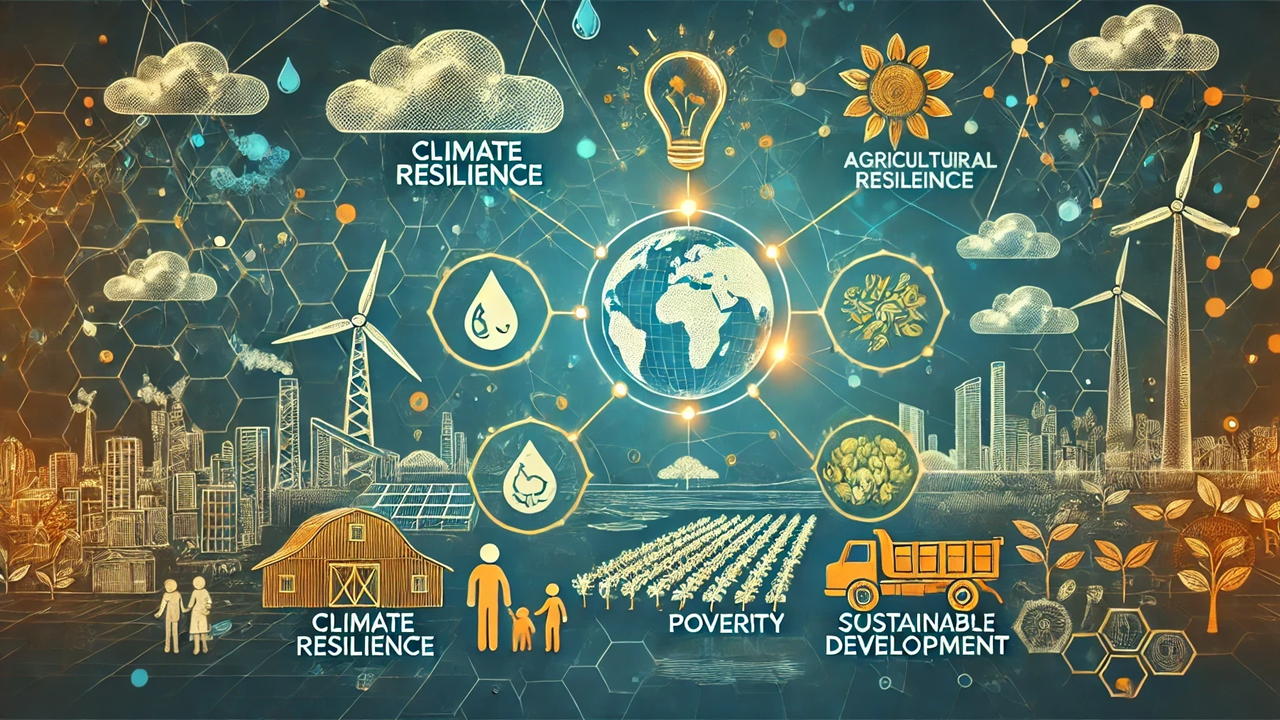World Bank's New Framework for Climate Equity: Balancing Welfare and Climate Action
The World Bank’s latest report, “Climate and Equity: A Framework to Understand Welfare Impacts and Guide Policy Action,” outlines a pioneering approach to tackle climate and poverty challenges together. By focusing on the specific needs of vulnerable communities, the report suggests practical policies for a just transition that balances welfare with climate goals, offering triple-win solutions for poverty alleviation, climate resilience, and sustainable development.

World Bank’s New Climate Equity Framework Tackles Poverty and Resilience Challenges
In a world facing unprecedented climate threats, vulnerable communities are on the frontlines, grappling with the dual challenges of environmental change and economic instability. The World Bank’s latest report, "Climate and Equity: A Framework to Understand Welfare Impacts and Guide Policy Action," presents a comprehensive strategy to address these intertwined challenges. By combining climate resilience with poverty alleviation, the report emphasizes a balanced approach that supports vulnerable communities, urging policymakers to design solutions that not only mitigate climate impact but also enhance welfare.
A New Approach to Climate Impact Assessment
The World Bank introduces a robust framework that reframes climate impact analysis through an equity-focused lens. Moving beyond conventional hazard and exposure assessments, this framework incorporates vulnerability considerations that capture the socioeconomic challenges poorer households face in recovering from extreme weather events. The approach acknowledges that low-income communities, with limited financial, social, and physical capital, are disproportionately affected by climate events. This highlights the critical need for policies that safeguard these communities while promoting sustainable growth.
Prioritizing “Triple-Win” Solutions for Lasting Impact
Central to the report’s recommendations are “triple-win” policies—measures that simultaneously foster climate resilience, support economic growth, and reduce poverty. Climate-smart agriculture, for instance, is identified as a key area where investment can yield high returns, helping farmers adapt to changing weather patterns while boosting productivity and economic stability. Other notable examples include sustainable forest management and clean energy initiatives, which benefit the climate and local economies without jeopardizing growth potential.
“By prioritizing policies that deliver triple wins, governments can create a positive cycle that reinforces environmental goals and poverty reduction,” the report suggests, pointing to evidence that these practices are feasible and can bring swift benefits to those who need them most.
Addressing Short-Term Trade-offs with a “Just Transition”
The report does not overlook the economic trade-offs that climate action can entail. Transitioning from fossil fuels to renewable energy sources, for instance, could lead to rising energy prices and job losses in carbon-intensive sectors, disproportionately impacting low-income groups. To manage these impacts, the report emphasizes the need for a “just transition,” which includes compensatory measures such as subsidies, retraining programs, and social protection schemes. This approach aims to prevent worsening inequalities while promoting a fair distribution of climate adaptation costs.
“A just transition is essential,” the report asserts, calling for policy packages that minimize economic burdens on the vulnerable while enhancing access to emerging green sectors. By supporting at-risk communities and workers, the World Bank envisions a smoother, more inclusive transition to a climate-resilient economy.
Anticipating Long-Term Climate Challenges
Looking to the future, the report warns of intensifying climate impacts, from extreme weather events to agricultural losses and labor productivity declines. These changes, which may render some areas uninhabitable, highlight the need for proactive policies that bolster resilience without stifling economic opportunity. The World Bank advocates for targeted adaptation strategies, such as strengthening infrastructure, expanding climate-resistant agriculture, and ensuring that the most affected communities receive adequate support.
Equitable Climate Action: A Global Responsibility
Beyond individual country policies, the report underscores the importance of global cooperation in climate equity. High-income nations, which historically contributed the most to carbon emissions, are called upon to take responsibility for mitigation efforts and support lower-income countries in their adaptation journeys. By committing resources and expertise, wealthier countries can help bridge the gap, enabling more equitable outcomes and mitigating the global impact of climate change.
Practical Solutions to Drive Change
The World Bank report provides actionable recommendations, emphasizing investments in public infrastructure, risk-sensitive agricultural practices, and financial support mechanisms tailored to low-income populations. These practical measures are designed to promote resilience and well-being, helping communities adapt to evolving environmental challenges without compromising their livelihoods.
The World Bank’s "Climate and Equity: A Framework to Understand Welfare Impacts and Guide Policy Action" represents a visionary step toward integrating climate resilience and social equity. By advocating for triple-win solutions, a just transition, and global collaboration, the report outlines a balanced path forward—one that places vulnerable communities at the heart of climate policy. As nations worldwide grapple with the accelerating effects of climate change, this framework offers a comprehensive guide for policymakers committed to building a sustainable and equitable future.
- FIRST PUBLISHED IN:
- Devdiscourse
ALSO READ
South Africa’s G20 Presidency Prioritizes Sustainable Development, Climate Action, and Debt Solutions
UNDP and Qatar Partner to Harness Digital Innovation for Sustainable Development
ADFD and Bahrain: A Model Partnership for Sustainable Development
UK Strengthens Partnership with IDB to Foster Sustainable Development in Latin America and the Caribbean
Lok Sabha Speaker Calls for Sustainable Development to Combat Climate Change










